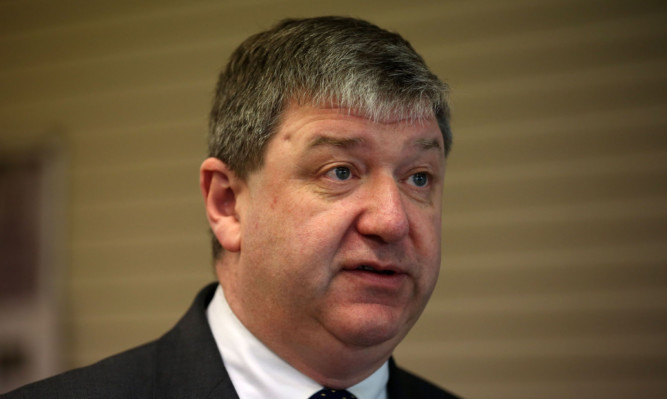Ramming proposals which amount to an English parliament through the Commons in a single day is the biggest threat to the union, a Liberal Democrat MP has said in an emergency debate.
Alistair Carmichael, who secured the urgent debate on Monday through a rarely used Commons rule, criticised the Government’s plans to create a system for English votes for English laws (EVEL) with a change in the rules of the House next week.
The former Scotland secretary said such a change should be carefully considered, with the ultimate verdict up to English voters.
Ministers have faced calls to legislate for the change, passing new laws over a period of weeks and months rather than the planned yes or no vote to the Commons rules scheduled for next week.
Mr Carmichael said he was “not resistant” to changes to offer more direct powers to English voters.
But the Orkney and Shetland MP said: “The threat (to the union) does come from English nationalism. What pains me to say today though is that English nationalism is to be found on the Treasury bench.
“The Leader of the House (Chris Grayling), when he came to the despatch box last week, made great pains of saying he was speaking as a Conservative and a unionist.
“I hate to say it but what he has brought forward is something that no unionist actually should be bringing forward.
“It is a perfectly understandable response for people in England to identify a national interest in response, as they saw, to the general election, to a mood of Scottish nationalism forming north of the border.
“The answer to that is not to meet it with more nationalism. The answer to that, in fact, I would say is a proper federal structure across the United Kingdom.”
Mr Carmichael said the proposed change to standing orders represented an attempt to create an English parliament inside the United Kingdom House of Commons.
He said part of the proposals – which create a “double majority” on some votes, meaning a motion must have a majority of all MPs and English MPs – would create two classes of MPs.
He continued: “Ultimately, the solution will be for the people of England to decide for themselves what they want their constitutional future to be. Is it they should have an English parliament? In which case, they should have an English parliament and this is the United Kingdom Parliament.
“Or is it to be they have some network of regional assemblies? Or something of that sort?
“That is a decision for the people of England to take for themselves. It is not something we should seek to shoehorn into our own standing orders.”
He added: “It is an issue which is required to be resolved by the people of England for the people of England but not by trashing the union and the United Kingdom Parliament of which we are all members here.”
The debate and vote on the planned change to standing orders to implement English votes for English laws is scheduled for next Wednesday, July 15.
If passed, the changes would come into effect immediately.
A new stage will be introduced for laws passing through Parliament when English, or English and Welsh, MPs will be asked to accept or veto legislation only affecting their constituents before it passes to third reading, its final Commons stage.
There will be a separate committee stage for English, or English and Welsh, MPs for bills not affecting Scotland and Northern Ireland, meaning legislation can be amended without the consent of all MPs in the Commons, although there will be further opportunities to overturn any changes.
The Speaker will be responsible for determining which bills will be subject to the new procedures.
